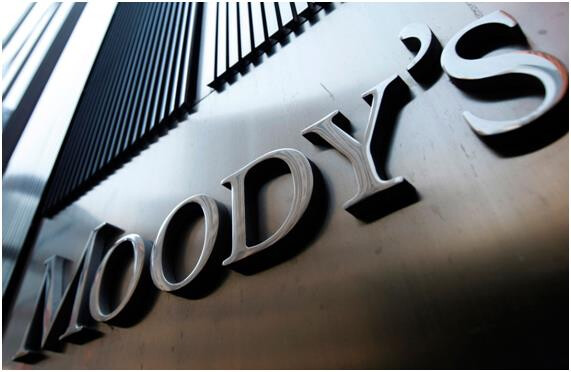
Last year saw a significant number of credit rating downgrades for major Korean companies. Some credit rating agencies downgraded nearly twice as many companies as they upgraded. This was largely attributed to the prolonged slump in the petrochemical and construction industries, coupled with a decline in consumer sentiment due to the prolonged economic downturn, which also negatively impacted the retail sector. With the economic downturn continuing and uncertainties mounting both domestically and internationally, including the inauguration of the second Donald Trump administration in the US and the prolonged political turmoil surrounding the potential impeachment of the president, the economic outlook for this year remains bleak.
According to Korea Enterprise Evaluation (Hanikpyung), the number of companies whose credit ratings were lowered last year was 28, which is double the number of companies whose ratings were raised (14). Korea Ratings (Hanshinpyung) also reported more than twice as many downgrades (23) as upgrades (10). Only NICE Credit Rating (Nasinpyung) saw a slight excess of downgrades (19) over upgrades (16). In this tally, cases where both long-term and short-term credit ratings were changed were counted as one.
A decline in a company's credit rating makes it more difficult to secure funding. This can lead to a vicious cycle of "deteriorating creditworthiness → deepening financial difficulties → further credit rating downgrades."
By industry, many petrochemical companies saw their credit ratings decline. Nasinpyung lowered the credit ratings of Hanwha TotalEnergies, SKPIC Global, and Hyosung Chemical, citing poor performance or increased financial burden due to large-scale investment plans. Hanshinpyung also downgraded Yeocheon NCC and Hyosung Chemical, while Hanikpyung lowered the ratings of Yeocheon NCC and Hanwha TotalEnergies.
The domestic petrochemical industry has recently faced an unprecedented crisis. This is due to the intensification of global oversupply caused by competition among major countries to expand their petrochemical facilities. In addition to China, which emerged as the world's largest producer in 2022, oil-producing countries in the Middle East have recently turned their attention to petrochemicals as a stable consumer market for their crude oil. The government predicts that the oversupply will reach five times the capacity of domestic petrochemical facilities by 2028 and recently announced a "Competitiveness Enhancement Plan for the Petrochemical Industry" focused on high-value-added and eco-friendly materials. However, it is uncertain whether this will lead to voluntary restructuring by companies, as government-led artificial business reorganization is difficult.
Credit rating agencies have also been downgrading the credit ratings of construction companies. Construction companies are suffering from rising construction costs and declining sales performance. According to the Ministry of Land, Infrastructure and Transport, construction costs rose by about 30% from 2020 to 2023. The number of unsold units has also increased about fivefold in the past three years. In addition, as financial authorities accelerate the restructuring of Project Financing (PF), they are also burdened with contingent liabilities from PF in local areas with poor business feasibility and long-term unstarted projects. For these reasons, Hanshinpyung lowered the credit ratings of Shinsegae Construction and GS Construction. Nasinpyung downgraded GS Construction due to the collapse of the Incheon Geomdan apartment complex, while Hanikpyung lowered the credit rating of Shinsegae Construction.
Major retail companies have also been downgraded due to financial difficulties. This is attributed to the contraction of private consumption due to the burden of excessive household debt and financial expenses, as well as the rapid shift of distribution channels to online. For these reasons, the three major credit rating agencies lowered the credit rating of E-Mart. Lotte Himart also saw its credit rating downgraded by Nasinpyung and Hanikpyung due to the expansion of online purchases of home appliances and intensified competition in the offline market.
There was also a clear difference in performance among groups. Lotte affiliates (6 companies) had the most companies whose credit ratings or outlooks were viewed negatively by Hanshinpyung. The Lotte Group was inevitably hit hard as its main businesses are in the distribution and chemical industries. This was followed by SK (4 companies) and Shinsegae (2 companies) in terms of credit rating (including outlook) downgrades. This is in contrast to Hyundai Motor (4 companies) and HD Hyundai (2 companies), which saw their credit outlooks brighten due to strong performance. Nasinpyung also lowered the credit ratings or outlooks of three Lotte Group affiliates.
The outlook for this year is also bleak. Hanikpyung predicted that the slump in the petrochemical and construction industries will continue this year. The automotive industry, which had performed well last year, also lowered its rating outlook to 'neutral' as the possibility of the US imposing universal taxation is being considered. Hanikpyung said, "Considering domestic and construction investment stagnation, policy risks of the Trump administration, and intensified competition with China, we expect the business conditions of many industries to be unfavorable."
[Copyright (c) Global Economic Times. All Rights Reserved.]



























